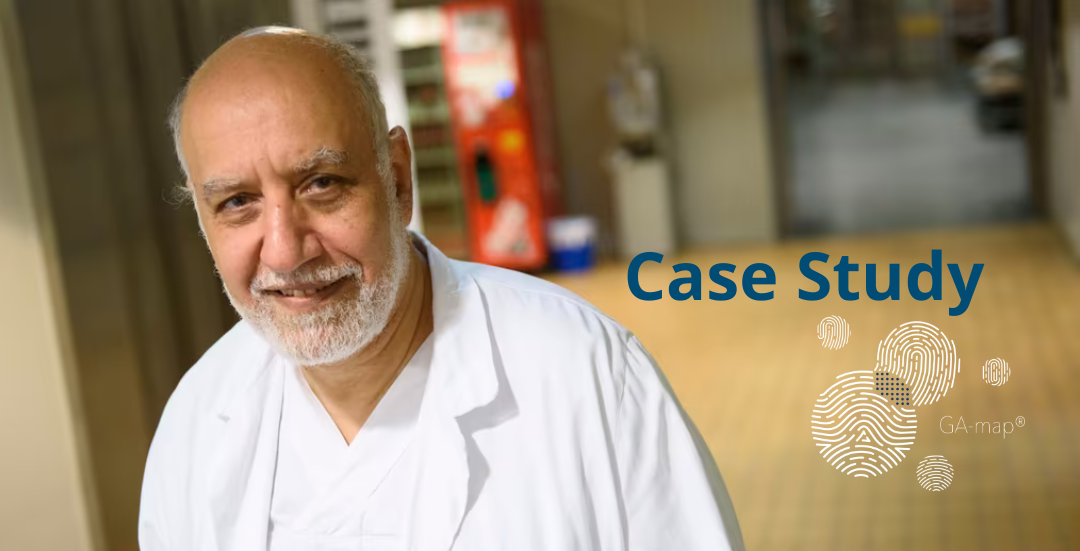Case Study: Proving Efficacy of FMT Therapy for IBS Treatment

Irritable bowel syndrome (IBS) is a common gastrointestinal disorder that considerably lowers the quality of life of sufferers. This torturous condition has a pathophysiology that is not well understood, and currently no effective treatment options exist.
Research has revealed that the gut microbiota of IBS patients differs from that of healthy subjects, and it is believed that this dysbiosis – disruption to the microbiome – may be a factor that contributes to the development of the condition.
Faecal microbiota transplantation (FMT) has been under investigation for several years as a potential treatment option, but its long-term efficacy in treating IBS patients remains unknown.
Magdy El-Sahly Research
Magdy El-Salhy is a Professor of Gastroenterology and Hepatology at the University of Bergen, with a particular interest in establishing the therapeutic potential of FMT for IBS sufferers.
His research team set out to resolve contradictory findings of several
recent studies by running a clinical trial to determine the efficacy of FMT for IBS patients. Throughout the study, the faecal samples of the donor and patients were analysed using the GA-map Dysbiosis Test (GA-map Test), a DNA analysis tool for gut microbiota designed to identify and characterise dysbiosis.
The results of this clinical study determined that FMT is an effective therapy for IBS, with up to 89.1 % of patients who received FMT responding to treatment. Additionally, around half of the patients experienced clinical improvements in abdominal symptoms, fatigue and quality of life.
A carefully constructed study protocol
Magdy El-Salhy´s trial had exceptional results, with almost 90 % of patients responding to FMT in one treatment group. It is important to get the protocol right to achieve good results like this, and their had five key aspects:
- Careful selection of a ‘superdonor’ in terms of clinical criteria.
- Ensuring that the donor had a stable microbiome
by frequent faecal analysis of his samples. - Freezing of the fresh donor faeces.
- Manual mixing prior to administration of the sample
- Transplantation directly into the small intestine of the patient guided by gastroscopy.
The GA-map Test was fundamental for this analysis, as well as to evaluate the intestinal bacterial profiles of patients following transplantation. We wanted to use a validated and standardised test, as our protocol involved repeated sampling and measurements of the donor. - Magdy El-Sahly
Factors that ensures success
Professor Magdy and his team performed faecal analysis of the superdonor at the start of the study, to ensure that he had normal gut microbiota, and then at every third month throughout the year to confirm that his microbiome was stable.
The GA-map Test was fundamental for this analysis, as well as to evaluate the intestinal bacterial profiles of patients following transplantation. They wanted to use a validated and standardised test, as their protocol involved repeated sampling and measurements of the donor.
Analyses using the GA-map Test allowed them to compare the results from different time periods and, unlike if they sent samples to a third-party sequencing laboratory, the team could study the differences.
Advancing research with the GA-map Test
The collaboration with Genetic Analysis AS (GA) was a crucial factor for the success of the trial; the team were easy to work with and adapted to their needs. One of Mandy’s study requirements was that the faecal samples had to be frozen and, as they had patients in different geographical locations, this was a challenge.
The GA team made this easy by offering the flexibility to come directly to them. When they received the samples, the GA-map Test was used to analyse them very quickly, and the team were provided tabulated results in a format that was easy to work with. This saved them from having to spend time dealing with complex outputs, making the analysis process less demanding.
The GA-map Test has been certainly critical in the development and success of the study.
The future
Now that we have established an effective protocol, we are applying for different grants to instigate trials for other conditions, including inflammatory bowel disease and neurological diseases. We will use the same study design, and will use the GA-map Test for analysis throughout, which will help us to understand the body-wide symptom improvements that were reported in our trial.
There is still so much to learn about the efficacy of FMT in many conditions, and we need more research to prove the benefits of this potential treatment. Faecal sample analysis using the GA-Map Test will be key to driving this research forward. - Magdy El-Sahly
